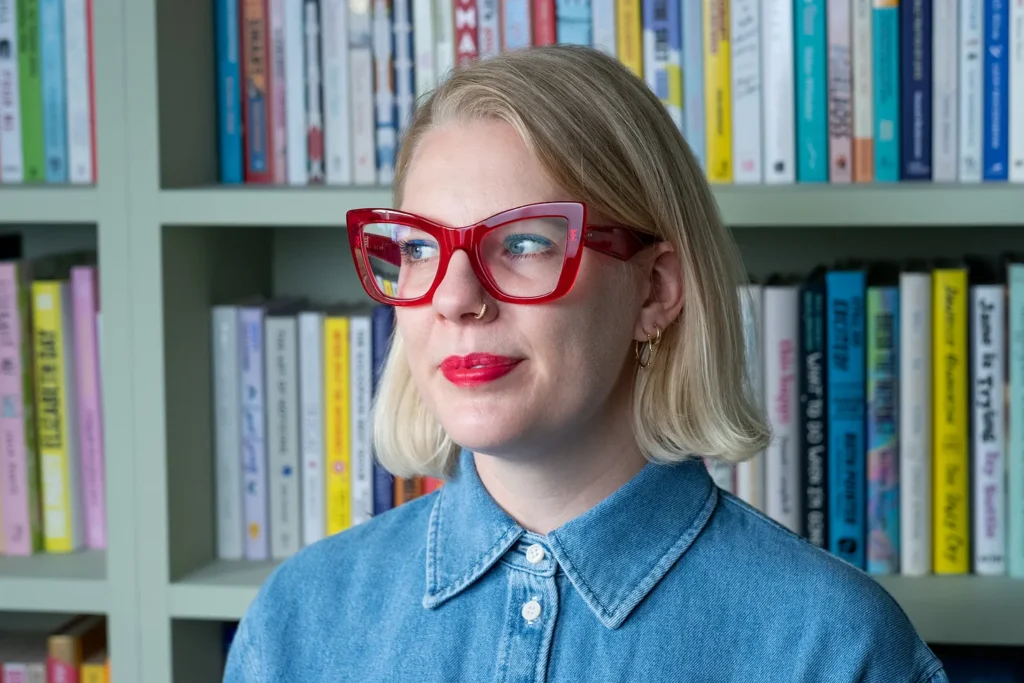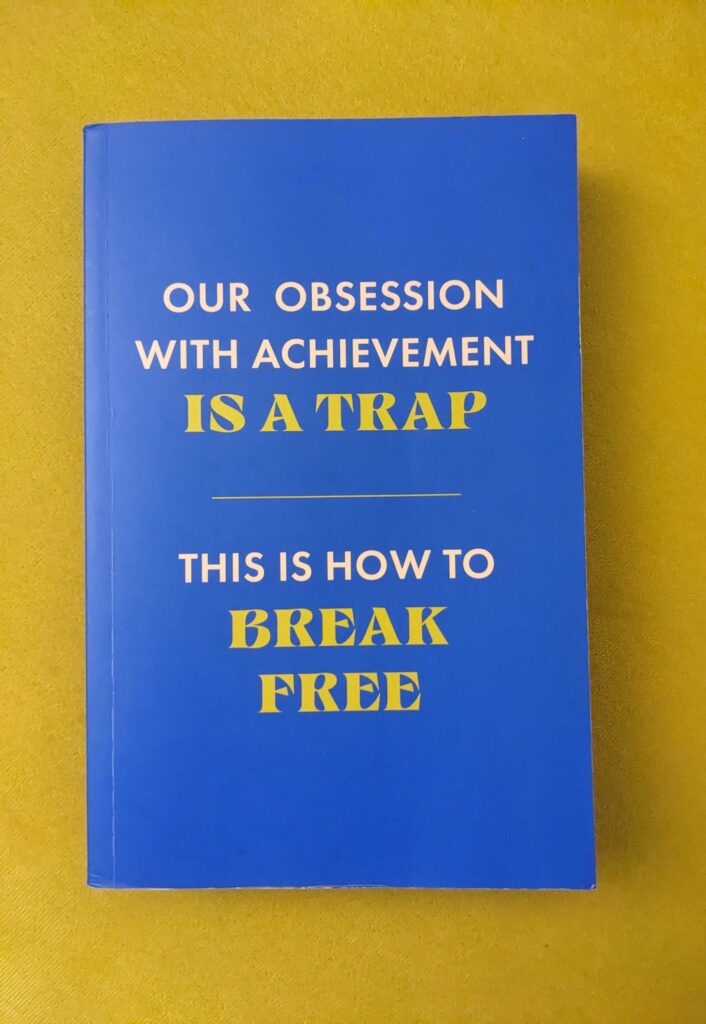Learning from the latest read by Emma Gannon
Emma Gannon is one of my favourite writers. And an amazing thinker. And podcaster. And all-round creator. As a successful multi-hyphenate, Gannon has developed a blooming career by doing a bit of everything that interests her, which has paid off in different ways: she’s interviewed some of the most famous people in the world, made the Forbes 30 under 30 list, and has already published five books. It’s her sixth, however, that explores the cost of this outwardly shiny success, how it eventually led to burnout, and how she is now redefining what it really means to achieve. Gannon draws on both deep personal reflections, as well as collated insights from expert guests she hosted on her recently-retired podcast.
The Success Myth is here to tell us how to let go of wanting it all, and break free from our obsession with achievement – and boy does it live up to the assignment.
The book is “for everyone, no matter where you’re at, or where you’re going”, and while it may speak most directly to “success junkies,” Gannon explores success through enough lenses for it to be relevant to a wide audience – not least women who feel the pressure to aim high, reach higher, break the glass ceiling and still be home in time to put a healthy dinner on the table (whether for ourselves or anyone else). Exploring myths associated with celebrity, money, happiness and productivity, among other typical markers of success, Gannon breaks down why and how we’ve been led to believe in common norms about what success looks like in these different areas, and how we might re-frame some outdated or unhelpful thinking to focus more on what really matters, makes us happy, and ultimately more fulfilled.
Generous with personal insights, as well as carefully crafted stories woven in with inspiring quotes from former podcast interviewees (Martha Beck, Mo Gawdat and Gillian Anderson, to name just a few), each chapter offers research, perceptive observations, and, helpfully, prompts for the reader to do some of their own reflection. The list of questions at the end of each chapter is curated in such a way that one could journal through them time and time again. A few I found particularly relevant for areas I might want to ponder include:
- Can you name some of your limiting beliefs?
- What does ‘not having it all’ look like to you?
- What productivity pressures are you putting on yourself?
- Why is money important to you? What does it allow you to do?
- Are you holding onto any ‘shoulds’? (on this topic, also see Francesca Specter)
But there is also an acknowledgement that we, as individuals, can only do so much. An addiction to, or obsession with, success and certain markers of achievement often stems from the structures that our lives, jobs, and education systems are embedded in. Capitalist structures. While Gannon isn’t exactly calling for a socialist revolution as the antidote to the achievement trap, she does highlight how we need to individually rethink our relationships with success, rather than solely await deep structural change (which is unlikely to come any time soon), as a way to “get back into the driving seat of our own lives.”
Nevertheless, she also appreciates how, despite the ever-present bad news, trauma and conflict happening across the world, in many ways now is the best time to be alive.
With rising literacy rates, lower levels of extreme poverty, and technology opening up new opportunities for connection and advancement, there are in fact a lot of achievements to be grateful for. The system may be broken, but there is at least some positive foundation to build on, and if we can figure out how to collectively address some of the questions raised in this book, we could be onto a great path.


Emma Gannon (©Paul Storrie) and her latest book, The Success Myth
Gannon also recognises the difficult role COVID-19 and related lockdown periods have played in our ideas of success and achievement. While some, Gannon included, could work hyper-productively from home, free from the distractions of socialising or commuting, many could not work at all. As highlighted in a 2021 Lazy Women article, women around the world were hit particularly hard during this time, whether due to increasing demands of health and social care, decreasing job security, or the burden of housework and its gender-stereotype conforming inequalities becoming even more prominent. Some, for the first time, had a real opportunity to sit in their house full of success markers and consider whether the fancy couch and top-of-the-range TV/sound system were really making them happy after all. For anyone who did have some major reflections back then, and now perhaps feels they’re caught back up in the normality of career ladders, presenteeism, and eating at all the Instagram hotspots wearing the latest trends, taking time to read this book could help give you the pause needed to make some timely positive mindset shifts, before getting back in too deep.
I also think this would be a great read for students, especially those looking to make the move to a big city with a shiny degree, ready to make their mark. For Gannon (and me, incidentally), this was London. But it may be Paris, New York, or Budapest – what matters is thinking about what you’re really hoping to find in those bright city lights. Although I do feel there has been a shift between Gen Z and Millennials (the latter being a generation label Gannon and I share) whereby the former are less willing to play the corporate game, in the same way, our slightly older peers were taught and encouraged to, it can’t hurt to read this book to prevent against getting caught up in what now almost feels like old-school hustle culture.
Gannon intends for this book, spanning around 320 pages, to be used as a “compass not a map.” In a brief afterword, the self-proclaimed “recovering success addict” talks about finding joy in living and savouring an ordinary life, “enjoy(ing) the ride, whatever that means for you.”
Success is about looking within, not always looking outward at the world, or to the left at our best friend, or to the right at our boss.
In order to break free from the achievement trap, which Gannon explores both on a macro and micro scale, we need to take a step back, slow down and think about what we’re really doing all this for – and consider doing it a different way.
The Success Myth is a book I will read multiple times, and be able to take away something different on each occasion. Having recently left a company I worked at for almost seven years, I could definitely identify with the notion of “career as identity” and how scary it can be to break away from that. I also know that moving into a new role, I’ll be wanting to work hard and prove myself. But, at the time of writing, as I seek to make the most of a brief pause between the two, I’ll be working through these prompts, carefully considering how I want this next chapter of my career, and life, success to look. A few I think might be helpful at this stage include:
- Does a routine help or hinder you?
- How do you define your work ‘self’?
- What do your ambitions look like now?
And in true Lazy Women style, this will be done with my feet up, and, depending on the time of day, a creamy cappuccino or glass of ruby red wine in hand. So, why not pop into your local bookstore this weekend, pick up a copy, and join me?
If you happen to be in London, here are a few of my favourites ….
Written by Lauren Powell.
Lauren currently works in education publishing, having previously been in the realm of UK public policy. A Welsh native now based in London, she studied Politics and International Relations, which included a year working in international development. She is an avid reader, bottomless brunch fan, and devoted follower of Yoga with Adriene. Read more of her work via The Navigation.
Illustrated by Janka Sára Balázs.
Janka Sara is a Rotterdam and Budapest-based visual artist, focusing mostly on animation and illustration. She takes inspiration from her environment through the observation of relations and social conventions. These are represented as a reflection in her work, let it be political, social or individual. Her work often explores the tension between cultural expectations and the reality of women’s lived experiences.

